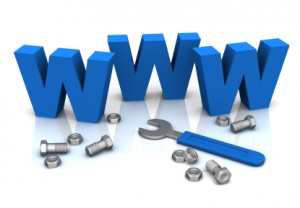 Have you ever looked at a great website and analyzed what exactly is on it?
Have you ever looked at a great website and analyzed what exactly is on it?
I want to spend some time with you analyzing just what makes a great website great, specifically I want to talk about the about the extra pieces, besides the general writing, that make up a successful website.
One such “extra piece” is the use of videos. Not everyone likes to read so if you give your visual visitors something to look at, such as How To videos or a tour of your neighborhood, they’re more likely to stay around and see what you’re about.
Another essential item for a website’s success is testimonials. If you have happy clients, put their letters or emails on your site. Potential clients like to know that others have gone before them and are happy with what you provide. The testimonials can also be videos if you have people who prefer to do it that way.
Another very important element, besides the written words (also known as content), is the use of graphics. I’m talking about eye-pleasing photos, charts, and clip art pictures that draw focus, make the web page interesting, and break up what would be considered a lot of text.
This next one is simple, yet so many websites overlook it – contact information. There is nothing more frustrating than looking all over a website and not finding a way to contact the site owner. Too often we make a visitor search for the Contact Me page instead of making that info readily available. On every page of the website there should be an address, phone number, and email address. This is crucial to good customer service, and it makes a site look more legitimate and less suspicious.
Now that I have talked about what makes a website great, let’s talk about why some websites suck!
You might think it’s enough just to have a website up and that it doesn’t have to be perfect. After all, it’s not your specialty and you’ve got LOTS of other stuff to do.
You’re right, it doesn’t have to be perfect. But it shouldn’t suck. Here’s a list of what makes for a website failure. Hopefully you’re not making these mistakes too.
* Too many ads. This is a turnoff to anyone who stops by. They’re not necessarily there to buy and even if they are they don’t want it forced down their throats.
* Confusing site navigation. If people arrive on your site and they can’t find what they’re looking for easily, they’ll quickly leave.
* Similarly, there is no clear call to action. Does your content/information conclude with asking them to take action, like buy or click on another page?
* Amateurish website. Graphics that look like you did them yourself (no offense), content that’s not aligned and goes off the page, photos that cause some pages to be too wide, etc.
* Not enough content, or content that’s lacking in value. Too many pictures and not enough words not only annoys your visitors but doesn’t help your website’s search engine rankings.
* Missing pages. Search engines like to see that you have certain pages such as a privacy policy and terms of use, among others.
So to wrap up, please take a few moments to mentally go through a checklist of your site to see where you win and where you lose!
Here’s a reality check, or checklist, regarding your website. You can mentally tick a Yes or No to each of these…
__ I have a website that perfectly showcases what my business is.
The face of your website is the face of your business. It should reflect what your business is and does, and what your values are. This is important to remember as more and more people search via the Internet.
__ My website has professional graphics and design and looks beautiful.
Image is important. It doesn’t have to be all slick and over-the-top but it should be professional enough to be engaging and evoke trust.
__ New people are visiting my site every day.
People, aka traffic, are important to your business. Get that traffic through various marketing methods.
__ I look at my site’s stats and know where my customers are coming from.
Knowing how people are finding your site means you can beef up the weak areas or put extra time and resources in the strong areas.
__ I use social media and there are links on my site.
At the very least you’ll want to consider getting on Twitter and putting up a Facebook fan page.
__ I collect names and email addresses of my site visitors so I can market to them down the line.
This is huge! Offer something people want in exchange for their email address and you’ll have a targeted list of people who are interested in what you have to offer.
__ Other websites have links to my site.
This is called back linking and it helps your site get higher up in the search rankings. The better your site sits in Google, the more traffic you get.
Don’t feel bad if you marked many of these No. You’re not alone. But you can turn that around and make these all Yeses and get ahead of your competitors. I’m here to answer your questions. 🙂
Discover more from RealtyTechBytes.com by Jerry Kidd
Subscribe to get the latest posts sent to your email.







